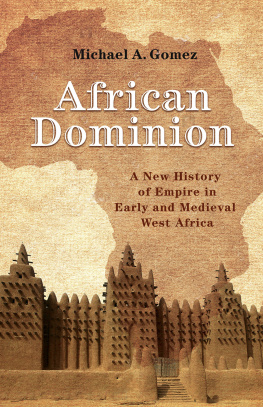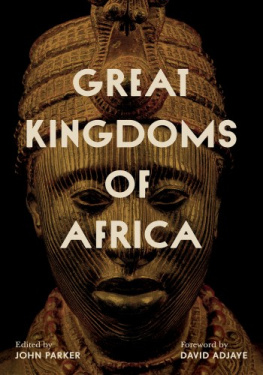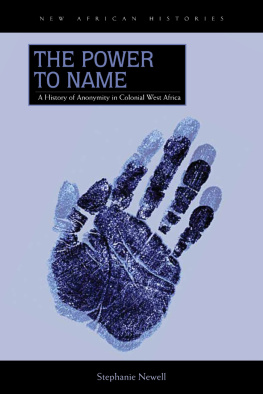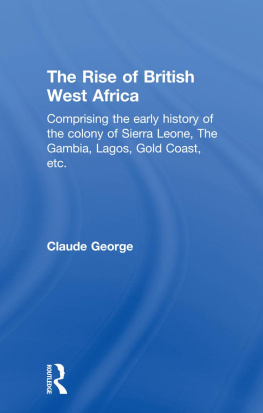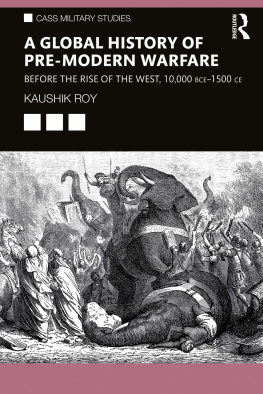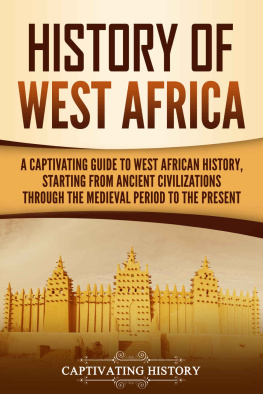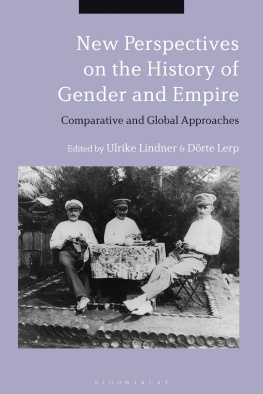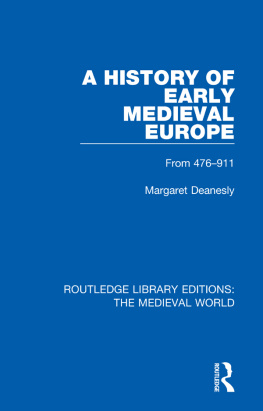African Dominion
A NEW HISTORY OF
EMPIRE IN EARLY AND
MEDIEVAL WEST AFRICA
Michael A. Gomez
PRINCETON UNIVERSITY PRESS
PRINCETON & OXFORD
Copyright 2018 by Princeton University Press
Published by Princeton University Press,
41 William Street, Princeton, New Jersey 08540
In the United Kingdom: Princeton University Press,
6 Oxford Street, Woodstock, Oxfordshire OX20 1TR
press.princeton.edu
Jacket photo: Great Mud Mosque, Djenn, Mali. Courtesy of Ruud Zwart
All Rights Reserved
Library of Congress Cataloging-in-Publication Data
Names: Gomez, Michael A., 1955- author.
Title: African dominion : a new history of empire in early and medieval West Africa /
Michael A. Gomez.
Description: Princeton : Princeton University Press, 2017. | Includes bibliographical
references and index.
Identifiers: LCCN 2017029692 | ISBN 9780691177427 (hardcover : alk. paper)
Subjects: LCSH: IslamAfrica, WestHistory. | SlaveryAfrica, WestHistory. | Africa,
WestHistoryTo 1884.
Classification: LCC DT476 .G66 2017 | DDC 966.02dc23 LC record available at
https://lccn.loc.gov/2017029692
British Library Cataloging-in-Publication Data is available
This book has been composed in Miller
Printed on acid-free paper.
Printed in the United States of America
10 9 8 7 6 5 4 3 2 1
ISBN : 9781400888160
PREFACE
WHAT FOLLOWS FULFILLS A QUEST that began at the University of Chicago, where, as an undergraduate transfer from Amherst College, I enrolled in the Islamic Civilization sequence and wrote a paper on Islam in early West Africa. Graded a C- by a graduate assistant who found the very concept dubious, the paper was for reasons unknown to me subsequently reviewed by the course professor, John E. Woods, who, in changing the grade to an A-, counseled me that, if serious, I would need to learn Arabic. It was a fateful intervention.
Immersed in other projects since graduate study, I only returned to focus on this subject around 2007, traveling to Mali to canvass and explore the manuscript collections in Timbuktu and Jenne. The early 2012 outbreak of war in northern Mali proved disruptive, but I have proceeded with materials already in hand that, as will be demonstrated, have not been fully exploited. It was also my finding that the vast majority of manuscript materials in Mali concern the eighteenth century and thereafter, but there are collections I have yet to see, and more may be uncovered. I therefore look forward to the opportunity to revise my findings in light of new documentation. I extend heartfelt thanks to all who assisted and extended their hospitality to me, especially Abdel Kader Hadara, director of the Mama Hadara Library in Timbuktu.
What is before the reader is only sixty percent of its original submission (as a two-volume work), addressing the most critical areas of inquiry. In underscoring the actors and issues themselves, my approach is not at all meant to slight the secondary scholarship; my debt to many will be obvious, especially the pioneering efforts of the late John Hunwick who, with Ralph Austen and Fred Donner, were my advisors, many moons ago. I would also mention the work and mentorship of Boubacar Barry and Lansin Kabaprincipal sources of encouragement over the years.
Parts 1 and 2 of the book cover the period through medieval Mali, and given the universal acceptance of the Corpus of Early Arabic Sources for West African History by Nehemia Levtzion and J.F.P. Hopkins, I adopt their rendering and forego haggling over minor disagreements in translation. I reference Joseph M. Cuoqs Recueil des sources arabes concernant lAfrique occidentale du XIIIe au XVIe sicle (Bilad al-Sudan) where it provides additional insight, or where appears a pertinent source not included in Levtzion and Hopkins. Finally, I follow Franz Rosenthals classic translation of Ibn Khaldns Muqaddimah. I provide my own translations in parts 3 and 4 of the book; some materials are not available in European languages, while in those for which such translations exist, nuances in the Arabic are important to underscore, with divergences substantive on occasion. I dispense with diacriticals for place names, retaining them in Arabic designations for either individuals or groups.
Finally, I employ a dual dating system in which the Islamic or Hijri date appears first, followed by the Gregorian equivalent, as the former better corresponds to how historical actors actually understood time. In using the terms early (third century CE to the seventh/thirteenth) and medieval (seventh/thirteenth to the end of the tenth/sixteenth century), I do not mean to suggest West African history conforms to European or Asian periodizations (though there is some correspondence). Rather, early and medieval effectively represent watershed developments in the conjoined region itself.
AFRICAN DOMINION
PROLOGUE
MALIS MANS SULAYMN could hardly have anticipated the consequences. The mid-eighth/fourteenth-century Muslim ruler of what may have been the most extensive realm Africa has ever known had deposed and imprisoned his chief wife Qs, but developments following her release offer critical vistas into the unfolding of Malian society. Supported by a faction of royal women, Qs openly defied Sulaymn, daily riding before an entourage of servants to the very gates of the Malian council. Inquiry would uncover intrigue and the early stages of insurgency, with Qs mobilizing disaffected royals while guaranteeing the armys support. Found in neither oral traditions nor external records, the episode is known only because Ibn Baa happened to be in Mali at the time. A direct threat to Sulaymns authority, Qss rebellion was apparently put down, her ultimate fate unknown. Tantalizingly, Ibn Khaldn records that with Sulaymns death in 761/1360, he was succeeded by a son... one Qs.
More than tangential, Qss rebellion is central to the history of early and medieval West Africa. The rise of Islam, the relationship of women to political power, the growth and influence of the domestically enslaved, and the invention and evolution of empire were all unfolding. In contrast to notions of an early Africa timeless and unchanging in its social and cultural categories and conventions, here was a western Savannah and Sahel that from the third/ninth through the tenth/sixteenth centuries witnessed political innovation as well as the evolution of such mutually constitutive categories as race, slavery, ethnicity, caste, and gendered notions of power. By the periods end, these categories assume significations not unlike their more contemporary connotations.
As indigenous responses to Islam and the trans-Saharan slave trade, these developments serve not only as a corrective to a popularized African past, but also as commentary on interpretations of modernity concerned with the transformation of global markets. Specifically, arguments that the transatlantic slave trade resulted in novel productive capacities (including industrialization) and labor relations, in turn generating new hierarchies of class, race, and gender, are of particular relevance. Here is an opportunity to observe the impact of parallel, anterior processes.
In pursuit of this anterior history, the present study mirrors as it uncovers its unfolding, providing substantive analyses where the evidence is sustaining. As such, successive chapters feature an approach to race informed by multiple rather than singular registers, with local, cultural signification in dialogue with translocal, discursive ideas.

